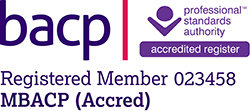In an earlier blog I talked about how our thoughts can trigger us to have an angry outburst. These thoughts can be difficult to identify but I believe, with help and reflection on what is happening within us before we erupt, we can identify the thoughts and the feelings. See blog on Thoughts and Behaviour – https://counsellinginblackpool.comanger-and-awaren…-part-3-thoughts/
The real emotion that may be hurting you could be shame. For many of us, anger is a cover for shame but there are no Shame Management Courses or many workshops to help us understand the difference between shame, guilt and anger. So let’s start with a few definitions.
Shame is “a painful feeling of humiliation or distress caused by the consciousness of wrong or foolish behaviour” (Oxforddictionaries.com).
Guilt – noun. the fact or state of having committed an offense, crime, violation, or wrong, especially against moral or penal law; culpability: He admitted his guilt. A feeling of responsibility or remorse for some offense, crime, wrong, etc., whether real or imagined.
Anger is “a strong feeling of annoyance, displeasure, or hostility.” (Oxford Languages Dictionary)
The author John Bradshaw sums up perfectly the differences between shame and guilt in the following way.
“Guilt says “I’ve done something wrong”; Shame says, “There is something wrong with me.”
Guilt says “I’ve made a mistake; Shame says, “I am a mistake.”
Guilt says, “What I did was not good”; Shame says, “I am no good.””
Did you know that shame is also the only emotion that can bind with other emotions? You can feel joy, sadness, fear, disgust, and anger at the same time as feeling shame.
“Shame is a significant part of all emotional distress in life. Shame can lead to a whole host of compulsive, addictive, irresponsible, and demoralizing attitudes and behaviours and is a major contributor to all sorts of emotional and physical distress that human beings experience. One primary indicator that shame is present in many peoples’ lives is explosive anger that leads to destructive and self-defeating attitudes or abusive actions toward themselves or others. When people basically feel “okay” about themselves, they do not feel a need to hurt and demean themselves or those around them.” (David Decker, Article – Shame – Rage Connection- https://www.angeresources.com/anger-resources-articles-essays.html )
We all experience shame. As we grow through childhood and into adulthood we begin to realise that we are not the same as others. We are not as clever, not as tall, not as fast a runner as our peers. This creates a sense of shame. However, if we live in a loving, supportive environment this helps to develop a realistic idea of who we are – we are not perfect and we don’t know everything and that is OK.
The shame that leads to explosive and demeaning anger is an overwhelming belief and feeling that you are never quite good enough. This belief, for many people, creates enormous tension and can result in anger and rage.
Our anger is triggered when somebody says or does something that throws us back into that feeling of shame (although we may not be aware that that is what is triggering it). We find ourselves back in that place that made us believe we were worthless, useless or a mistake. You think you are worthless and your partner says something derogatory to you and immediately those feeling of shame are triggered and your anger explodes.
These believes may have come from parents who were abusive or neglectful; by siblings or other children at school or in the neighbourhood if you were demeaned or put down by them. Anyone really who treated you disrespectfully and acted as if you were insignificant and had no worth. Look at the list below; do any of these phrases sound familiar? (This list is not exhaustive)
- “Hey fat boy”
- “How can you be so stupid?”
- “You never could do anything right”
- “If you think it’s so bad here, wait ’til you get out in the real world”
- “You’re a damn loser and you’ll never amount to anything”
- “You’ve ruined my life”
- “Nobody could ever care about anyone like you”
- “If it weren’t for you, I’d be somebody”
- “I wish you’d never even been born”
These are the kinds of statements that destroy our self-esteem and self-respect and set the stage for shame to overwhelm our own sense of self. As adults this is how we see ourselves and when we find ourselves in a situation that triggers these thoughts/feelings we can end up in a rage and we lash out at those around us.
So how do we move forward from these feelings? First of all it is critical to realize that the original shaming we experienced was not our fault and that you did not deserve to be shamed. You were not responsible as a child for the way you were treated, spoken to or neglected. As all children do, you believed what you were told by your parents, teachers and other significant adults in your life. You did nothing wrong.
Then we have to recognise what our core beliefs are and start to undo them. So, if one of your core beliefs is to think that you are worthless you have to start to see yourself as worthwhile, important for whom you are as a person.
What happened in the past was not your fault but what happens in the present (and in the future) is up to you. You are the one who is responsible to change your life to look at the feelings underneath your anger and recognise your triggers – those thoughts and feeling. No one else can do it for you. Your shame is your responsibility as an adult. The disrespectful anger, toward yourself or others, that flows out of the shame is your responsibility as well. You are in control of your life and only you can change it.
It is important that you have a loving and supportive environment to do this in. It could be done in the context of a relationship where your wife/husband/partner or a very good friend is able to give you the love and support you need to go deep inside of yourself and really look at the negative and defeating feelings within you and help you to move forward; To help you to love yourself and come to a more positive self-belief. This will take time and effort and heartache but look what you will gain – calmness, peace, self-love and no more explosive anger.
Or if you prefer to seek professional help contact me
- Email – ursula@counsellinginblackpool.com
- Tel – 07821 691888
- Website – www.counsellinginblackpool.com
- Facebook – https://www.facebook.com/counsellinginblackpool
An exciting and inspiring future awaits you
beyond the noise in your mind,
beyond the guilt, doubt, fear, shame, insecurity
and heaviness of the past you carry around.
Debbie Ford


Thank you for your article. Really looking forward to read more. Really Great. Chiarra Den Abdulla
You made some clear points there. I looked on the internet for the topic and found most individuals will go along with with your site. Nikoletta Tades Bohrer
Thanks for the article post. Really thank you! Great. Madelyn Hastings Cohn
I was pretty pleased to find this page. I want to to thank you for your time just for this fantastic read!! I definitely loved every part of it and I have you book-marked to see new things on your web site. Effie Raymund Meagher
I think the admin of this web site is actually working hard in support of his site, for the reason that here every stuff is quality based material. Persis Titos Correna Sofia Leonidas Herrera
I blog often and I seriously appreciate your content. Your article has truly peaked my interest. I will take a note of your blog and keep checking for new information about once a week. I subscribed to your Feed too. Jillian Taite Farmer
I really like your writing style, excellent information, thanks for putting up : D.
I need to to thank you for this good read!! I certainly enjoyed every bit of it. I have you saved as a favorite to look at new things you postÖ
May I simply say what a relief to discover someone that genuinely understands what theyre talking about on the internet. You actually realize how to bring an issue to light and make it important. More people must look at this and understand this side of the story. Its surprising youre not more popular given that you definitely possess the gift.
Im very happy to uncover this site. I wanted to thank you for ones time for this particularly wonderful read!! I definitely appreciated every bit of it and i also have you book marked to see new information in your site.
I needed to thank you for this great read!! I certainly enjoyed every little bit of it. I have got you book-marked to look at new things you postÖ
https://empress-escort.com/escort-girls-beer-sheva/